Doctor of Business Administration
To educate business executives in the concepts and techniques needed to understand a range of business disciplines and to conduct research on issues arising in professional business practice.
The programme aims to produce highly competitive business administration graduates who can succeed in a business administration career in Seychelles and beyond through a curriculum responding to general administration needs of the domestic and international business contexts.
On completing this BBA, the student is expected to be able to:
Specialisations and Duration of Programme
Title of qualification | Minimum duration | Maximum duration |
BSc (Honours) in Business Administration | 3 years | 8 years |
BSc (Honours) in Business Administration (with Human Resource Management) | 3 years | 8 years |
BSc (Honours) in Business Administration (with International Business) | 3 years | 8 years |
BSc (Honours) in Business Administration (with Financial Services) | 3 years | 8 years |
BSc (Honours) in Business Administration (with Marketing) | 3 years | 8 years |
The programme is offered in English.
The programme is offered full-time and part time.
In order to pass a course, you must
The grading system for the programme is as follows;
To pass the programme and be eligible to graduate with the relevant degree, you should pass the twenty-four courses of your chosen pathway at a minimum pass mark of 40%.
Your final grade will be the average of the aggregate marks for all courses.
First Class: 70% and above
To achieve the learning outcomes of the courses in the programme, students will be expected to undertake a one–month internship programme at the end of semester 2, 4 and 6 and submit an internship report.
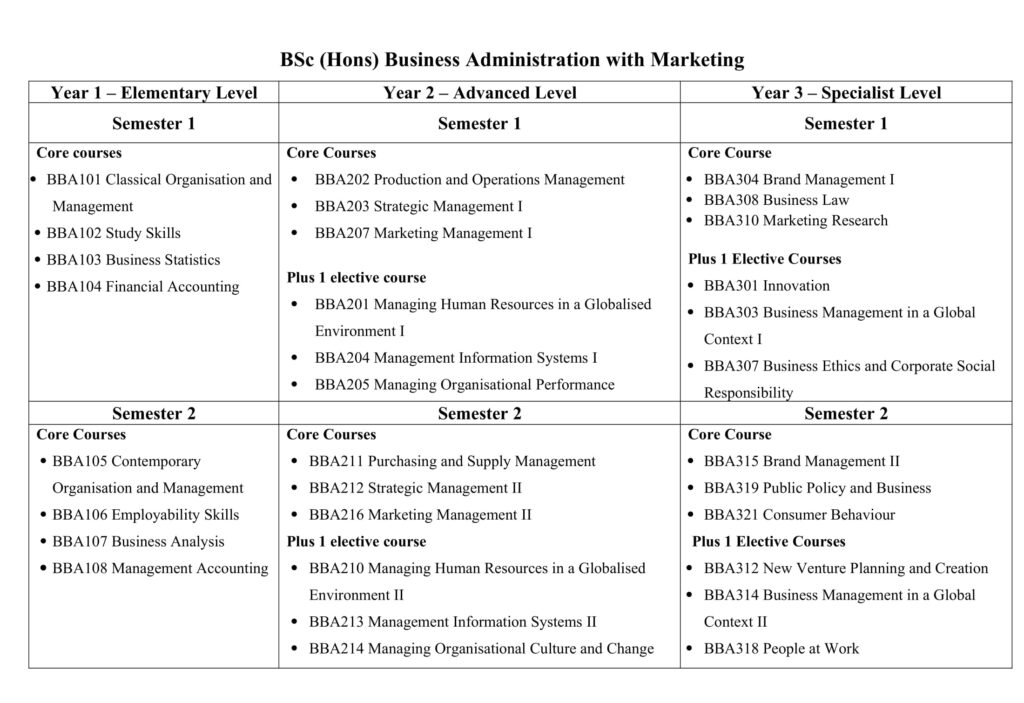
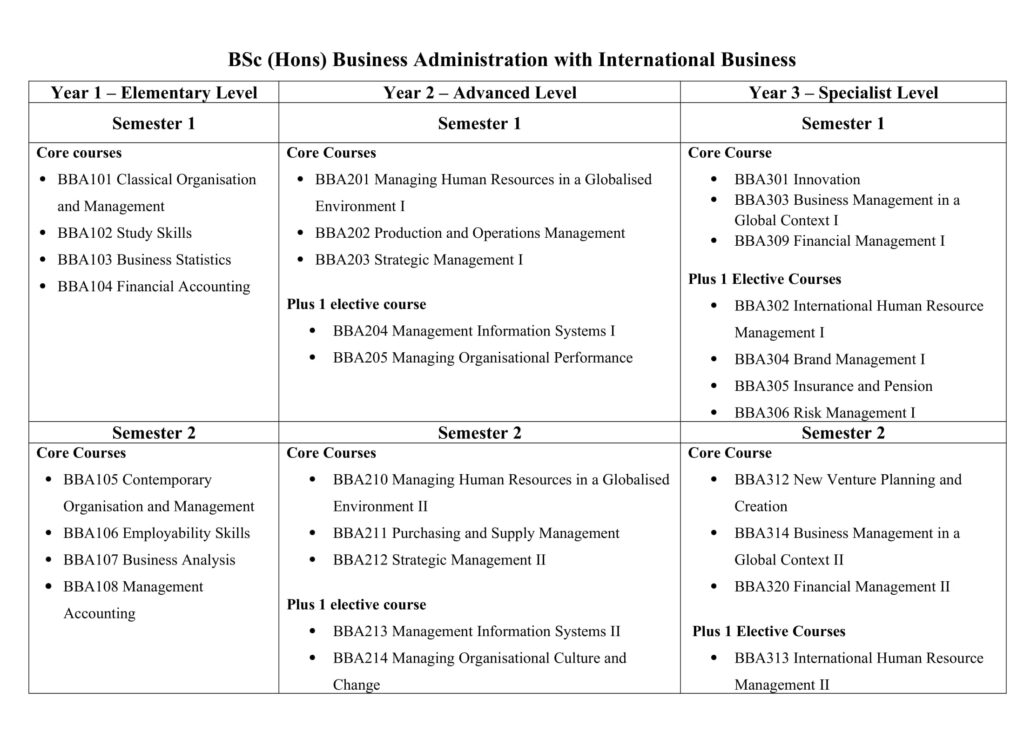
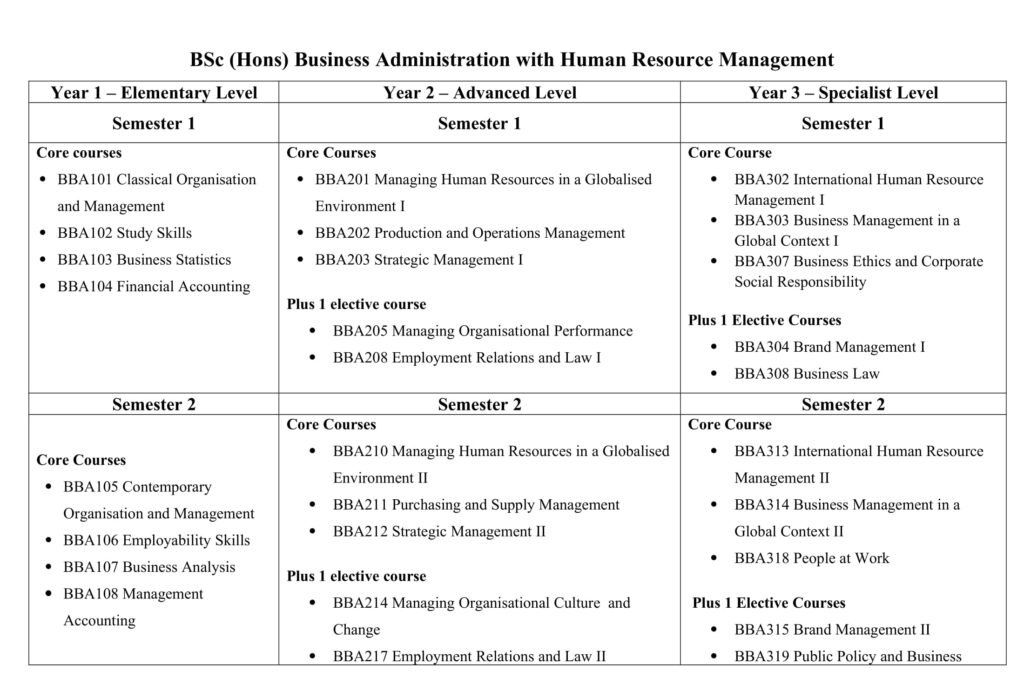
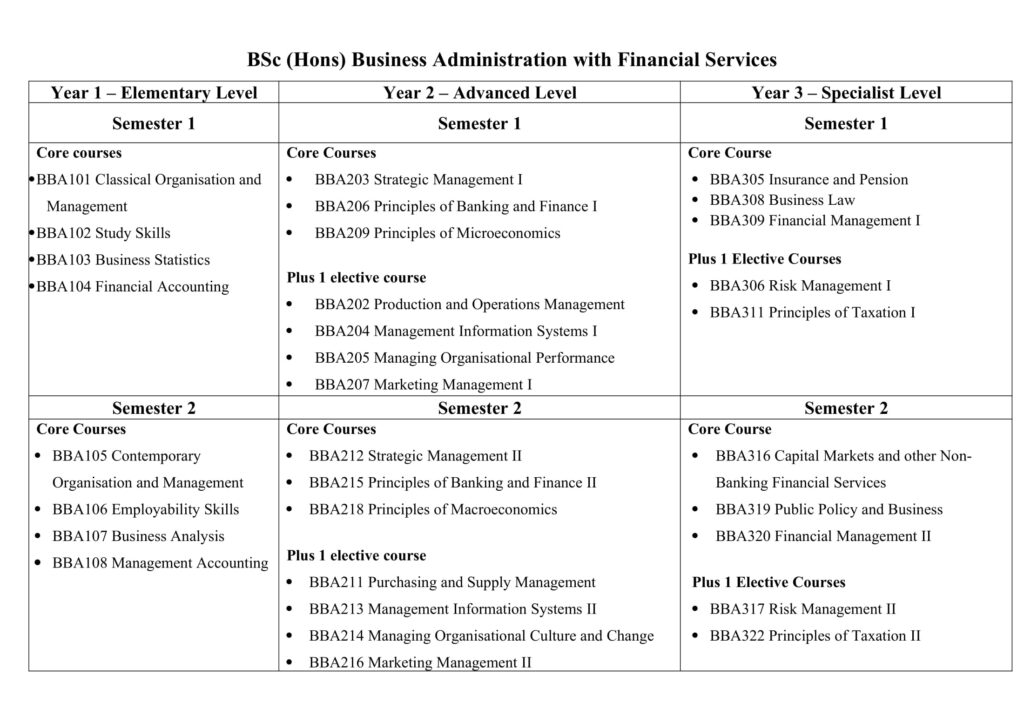
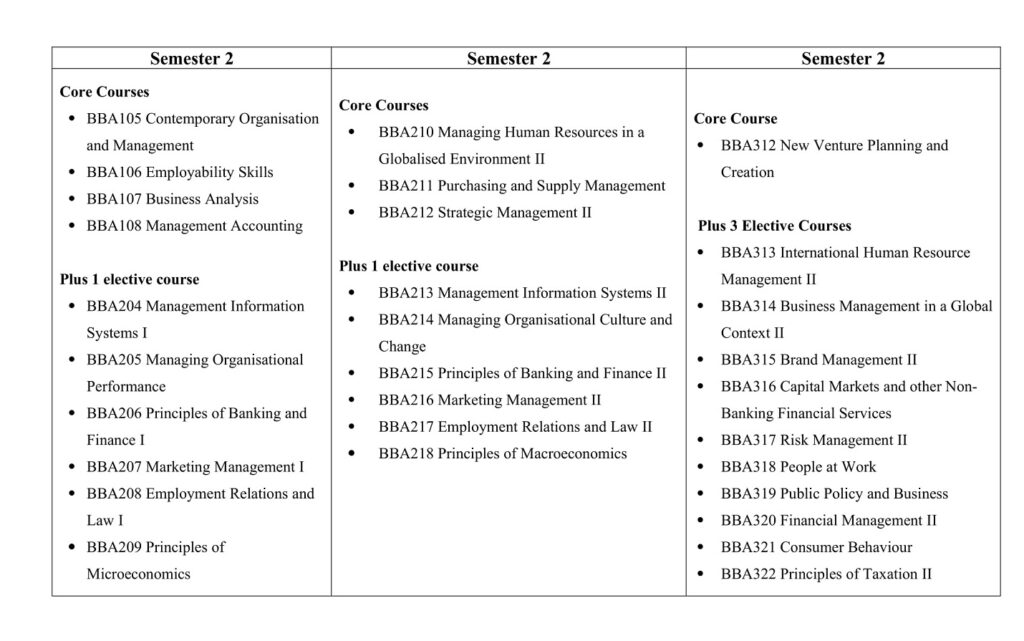
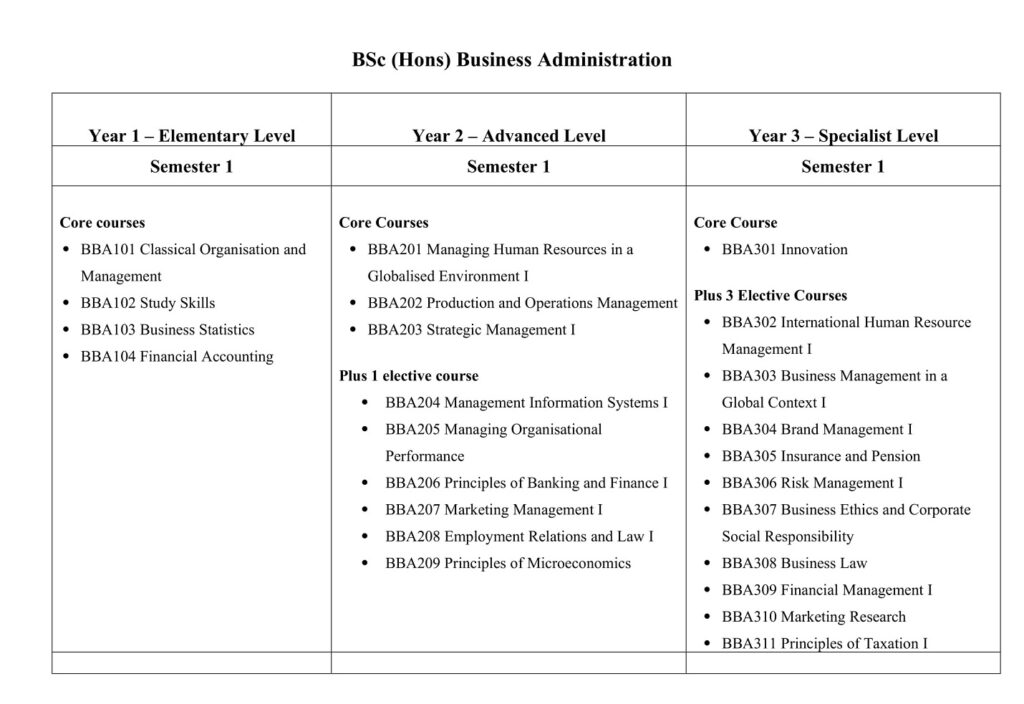
To be eligible for BSc in Business Administration you must normally* be aged 17 or above in the year of registration and
Technical Pathway
*Applications will be considered from applicants who do not meet the normal minimum age requirement for admission. Each application will be considered on an individual basis, and the decision taken will be at the discretion of the University.
SCR 165,000 per year *
*Fees are subject to change.
The University offers flexible payment plans and special tuition fees for self funding students. Kindly contact us for more information regarding these fees.
To educate business executives in the concepts and techniques needed to understand a range of business disciplines and to conduct research on issues arising in professional business practice.
The aim of the programme is to produce graduates who can succeed in a travel and tourism economics career in Seychelles and beyond.
The programme offers students the opportunity to study both economics and finance. In so doing, it equips them with the knowledge and understanding of methods and concepts in both economics and finance and enables them apply both financial and economic reasoning. The programme ideally prepares students for graduate study in the subjects and for a future career in finance and economics.
The programme aims to produce highly competitive business administration graduates who can succeed in a business administration career in Seychelles and beyond through a curriculum responding to general administration needs of the domestic and international business contexts.
The BSc Environmental Science programme is a University of Seychelles undergraduate degree that has been running since 2012 and was first accredited by the Seychelles Quality Assurance (SQA) body in 2013/2014. The degree is a broad and generalised programme with a special emphasis on tropical environments and environmental issues relating to small island developing states.
The CEMBA/CEMPA Programme is designed to help busy practicing professionals, managers and public service officers gain a higher level of competency and develop an international perspective and global outlook.
The Programme is flexible — offered on a part-time basis while using a learner-centered system (in-class or online) so students can continue to work while accessing higher education.
